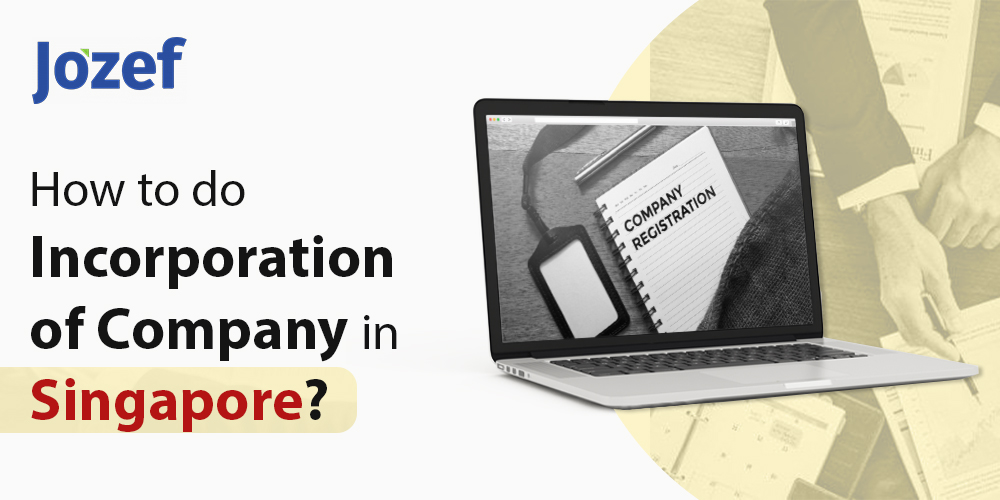Aspire to set up your business in the vibrant heart of Southeast Asia? Look no further than Singapore – a global hub for innovation and commerce!
Renowned for its highly developed and diverse economy, Singapore is deeply focused on trade, finance, and technology. It has consistently ranked as one of the world’s busiest ports and a global financial hub. The country has a reputation for a pro-business environment and economic stability.
Undoubtedly, choosing to incorporate in Singapore is a highly advantageous decision for businesses of all types. Furthermore, company incorporation in Singapore is efficient and streamlined, attracting both local and international business owners.
In this blog post, we will provide a complete guide to navigate the steps involved in incorporating a company in Lion City and highlight the critical factors to consider when establishing a successful business. The steps are as follows:
- Choosing the Right Business Structure:
The initial stage of incorporating a company in Singapore involves choosing the appropriate business structure. Options typically include a private limited company (Pte. Ltd.), sole proprietorship, partnership, and limited liability partnership (LLP).
Each business structure comes with its own set of advantages and disadvantages, influenced by factors such as the number of owners, liability protection, and tax implications etc.
- Reserve a Company Name:
Select a Unique and Appropriate Name
Choose a business name that is exclusive and appropriate for your company.
Check availability:
Verify the selected name’s availability to ensure it is not already in use.
Reservation Process:
Reserve the selected name through the Accounting and Corporate Regulatory Authority (ACRA) website.
Ensuring a unique and fitting name is crucial for company incorporation, and promptly reserving it adds a layer of protection to your preferred choice.
- Appointing Company Officers:
Identification and appointment of directors.
Choose at least one director, who must be a Singapore citizen, permanent resident, or an Employment Pass holder.
Appointment of a Company Secretary:
The company secretary must be a resident of Singapore and a natural person
Within six months of incorporation, appoint a company secretary.
Shareholders’ eligibility:
Shareholders can be individuals or corporate entities.
4. Registered Address:
Provide a local address to serve as the registered address for the company.
5. A minimum paid-up capital of SGD 1
6. Documents and Information:
Prepare the necessary documents such as
- Memorandum and Articles of Association (M&AA).
- Details of Shareholders, Directors, and Company Secretary.
- Company Name Reservation Form
- Registered office address
- Declaration of compliance.
- Business profiles
- Share certificates
- The company seal and so forth.
7. Submit an application to ACRA:
The process of submitting an application involves preparing required documents, engaging a filing agent, completing an online application through ACRA’s official website, providing necessary information, paying relevant fees, awaiting review and approval, and receiving the Certificate of Incorporation.
8. Approval and Certificate of Incorporation:
Once ACRA approves the application, you will receive a Certificate of Incorporation.
9. Open a corporate bank account:
Choose a local bank and open a corporate bank account for your company.
10. Tax Incorporation:
Register for Goods and Services Tax (GST) if your company’s annual turnover surpasses the prescribed limit.
11. Adherence to Regulatory Compliance:
Ensure compliance with regulatory mandates, which include conducting Annual General Meetings (AGMs) and submitting annual returns.
12. Business Licences and Permits:
Check and obtain any necessary business licences or permits specific to your industry.
13. Employment Pass (EP) for Foreign Directors:
If applicable, obtain an Employment Pass for foreign directors.
14. Corporate Seal and Share Certificates:
Issue share certificates to shareholders and obtain a corporate seal.
15. Ongoing compliance:
Stay informed about ongoing compliance requirements, including filing annual returns, updating changes to company details, and meeting tax obligations.
Conclusion
Incorporation of a company in Singapore involves a systematic approach that includes selecting a unique and fitting name, providing a local address as the registered address, and ensuring all necessary documents are in order. Singapore’s Pro-business environment and efficient regulatory framework make it an attractive destination for entrepreneurs.
Seeking professional help from HiJozef can enhance the efficiency of the verification process and provide valuable guidance. Overall, the incorporation process in Singapore positions businesses for success in a dynamic and thriving business environment.





